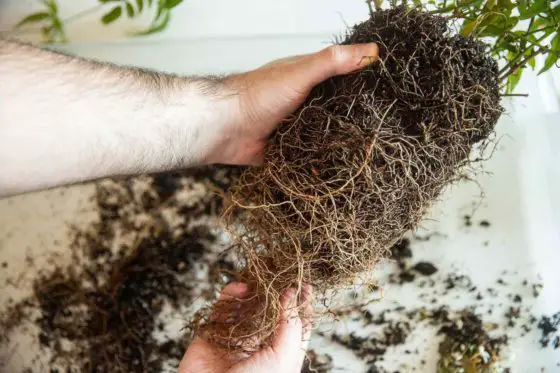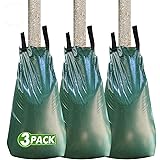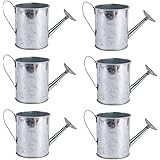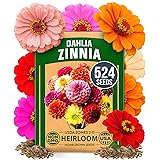Should you loosen roots before planting? It’s a question that often arises when preparing to add new plants to your garden. Well, the answer is not as straightforward as a simple “yes” or “no.” Loosening the roots before planting can be beneficial in certain situations, but it’s not always necessary.
Understanding the reasons behind loosening roots and when it should be done can help ensure the success of your plantings. So, let’s dive into the details and explore whether you should loosen roots before planting or not.
Should You Loosen Roots Before Planting?
When it comes to planting a new tree or shrub, one of the common questions that arises is whether to loosen the roots before placing it in the ground. Some gardeners swear by this practice, believing that loosening the roots encourages better growth and establishment. Others argue that it can cause damage and stress to the plant.
So, should you loosen roots before planting? Let’s take a closer look at this topic and explore the potential benefits and drawbacks.
The Case for Loosening Roots
Proponents of loosening roots before planting argue that it can provide several advantages to the plant’s overall health and growth. Here are some reasons why gardeners might consider loosening roots:
- Breaking up root-bound plants:
When a plant is grown in a container for an extended period, its roots can become tightly packed or even “root-bound.” Loosening the roots can help break this compacted mass, allowing the roots to spread out more freely once planted in the ground.
- Stimulating root growth:
By gently loosening the roots, you can encourage new root growth. This can lead to better nutrient absorption and overall plant health, as a larger root system will have a higher capacity to take up water and nutrients from the soil.
- Promoting faster establishment:
Proponents argue that loosening the roots can help the plant establish itself more quickly in its new environment. This faster establishment can lead to a higher survival rate and better growth in the long run.
Read More: About Do I Need a Propagator? A Gardener’s Guide
The Counterarguments
While some gardeners swear by loosening roots, others believe it can harm the plant rather than help. Here are some counterarguments against the practice:
- Risk of root damage:
Loosening the roots, especially if done improperly, can cause damage to the delicate root system. This can include tearing or breaking roots, which can impede the plant’s ability to take up water and nutrients.
- Disruption of the soil structure:
Loosening roots can also disturb the soil structure around the plant, potentially impacting its stability. This can be especially problematic in areas with loose or sandy soil, where the plant may struggle to anchor itself.
- Increased transplant shock:
Some studies suggest that loosening roots can increase transplant shock, which is the stress a plant undergoes when moved from one location to another. This shock can lead to leaf drop, stunted growth, or even plant death.
The Middle Ground: Best Practices
Considering the different perspectives on loosening roots before planting, it’s important to approach the practice with caution and follow best practices. Here are some guidelines to keep in mind:
- Assess the root system:
Before deciding whether to loosen the roots, carefully examine the plant’s root system. If the roots are tightly packed, circling around the bottom of the container, or showing signs of being root-bound, loosening may be beneficial.
However, if the roots appear healthy and well-distributed, it may be unnecessary.
- Handle with care:
If you choose to loosen the roots, do so gently and avoid excessive force. Use your fingers or a tool to carefully tease out the roots, being mindful not to damage them.
- Prepare the planting hole:
Regardless of whether you loosen the roots or not, it’s crucial to prepare a suitable planting hole. Dig a hole that is wide enough to accommodate the root ball without crowding or bending the roots.
The hole should also be deep enough so that the plant sits at the same depth it was in the container.
- Backfill and water properly:
After placing the plant in the hole, backfill with soil, gently firming it around the roots. Then, water the plant thoroughly to help settle the soil and eliminate air pockets.
- Maintain proper care:
Once planted, provide appropriate care for the plant, including regular watering, mulching, and monitoring for any signs of stress or issues.
A well-cared-for plant is more likely to establish successfully, regardless of whether the roots were loosened.
In the debate over whether to loosen roots before planting, there are valid arguments on both sides. While loosening roots may benefit root-bound plants and stimulate growth, it can also pose risks such as root damage and transplant shock.
Ultimately, the decision should be based on the specific condition of the plant and your gardening experience. By carefully assessing the root system, handling the roots with care, and following proper planting practices, you can give your new plants the best chance for success.
Remember, healthy plants rely on a combination of factors, including proper watering, sunlight, and soil conditions, so be sure to provide optimal care throughout the plant’s life.
Read More: About Do Peace Lilies Have a Scent?
Frequently Asked Questions (FAQs)
Loosening the roots before planting helps to stimulate root growth, allowing them to establish more quickly in their new environment.
To loosen the roots, gently untangle them with your fingers or use a small garden tool to carefully separate any compacted roots.
It is best to loosen the roots shortly before planting, ideally just before placing the plant in the ground or pot.
Yes, loosening the roots helps create a healthier root system, allowing plants to take up water and nutrients more efficiently, which in turn promotes better overall growth.
Loosening roots is generally beneficial for most plants, but some delicate or sensitive species may require more gentle handling. It’s always a good idea to research the specific plant’s needs before proceeding.
Some plants with very fragile roots, such as orchids, may not benefit from root loosening. In such cases, it’s advisable to follow the recommended planting instructions for the specific species.
Yes, loosening the roots can minimize transplant shock by encouraging faster root establishment and reducing stress on the plant.
While it’s important to be gentle when loosening roots, the risks of damaging the plant are minimal if you proceed with care. Take your time and handle the roots delicately to avoid any unnecessary harm.
Final Thoughts
Loosening roots before planting is a common practice that some gardeners swear by, while others argue against it. However, based on current knowledge and expert advice, the general consensus is that loosening roots before planting is not necessary and may even be detrimental to the plant’s health. Research shows that disturbing the root ball can cause damage to the delicate root system and disrupt its ability to absorb water and nutrients effectively.
Instead, it is recommended to gently remove any excess soil from the roots and plant the root ball as it is, allowing the roots to naturally spread and establish in the new soil. So, should you loosen roots before planting? The answer is no.
Auto Amazon Links: No products found.
VEVOR Tree Watering Bags Slow Release, 4 Pack 16 Gallons Tree Watering Ring, Reusable Refillable Tree Irrigation Ring Water Bags, Heavy Duty Watering System for Shrub Tree Root Drip Irrigation
$29.99 (as of February 26, 2026 06:30 GMT +00:00 - More info- Product prices and availability are accurate as of the date/time indicated and are subject to change. Any price and availability information displayed on [relevant Amazon Site(s), as applicable] at the time of purchase will apply to the purchase of this product.
Perfect Plants Christmas Tree Saver 8oz. | Easy Use Xmas Tree Preserver Food | Have Healthy Green Christmas Trees All Holiday Season
$16.99 (as of February 26, 2026 06:30 GMT +00:00 - More info- Product prices and availability are accurate as of the date/time indicated and are subject to change. Any price and availability information displayed on [relevant Amazon Site(s), as applicable] at the time of purchase will apply to the purchase of this product.
Mini Decorative Watering Can, Set of 6, Height 1.97 inch, Cute Metal Jug for Hand Crafts,Garden Theme Parties and Home Decor
$8.99 (as of February 26, 2026 06:30 GMT +00:00 - More info- Product prices and availability are accurate as of the date/time indicated and are subject to change. Any price and availability information displayed on [relevant Amazon Site(s), as applicable] at the time of purchase will apply to the purchase of this product.
Remiawy Tree Watering Bag, 20 Gallon Slow Release Watering Bag for Trees, Irrigation Bag Made of Durable PVC Material with Zipper (3 Pack 5-8 Hours Releasing Time)
$31.58 (as of February 26, 2026 06:30 GMT +00:00 - More info- Product prices and availability are accurate as of the date/time indicated and are subject to change. Any price and availability information displayed on [relevant Amazon Site(s), as applicable] at the time of purchase will apply to the purchase of this product.
Mini Handmade Decorative Watering Can, Set of 6, Height 2.36 inch, Cute Metal Jug for Hand Crafts,Garden Theme Parties,Home Decor and Accessories of Refrigerator Magnets (Silver, Height 2.36 inch)
$15.99 (as of February 26, 2026 06:30 GMT +00:00 - More info- Product prices and availability are accurate as of the date/time indicated and are subject to change. Any price and availability information displayed on [relevant Amazon Site(s), as applicable] at the time of purchase will apply to the purchase of this product.
TERRO Ant Killer Bait Stations T300B - Liquid Bait to Eliminate Ants - Bait System - 12 Count Stations for Effective Indoor Ant Control
$11.97 (as of February 25, 2026 10:15 GMT +00:00 - More info- Product prices and availability are accurate as of the date/time indicated and are subject to change. Any price and availability information displayed on [relevant Amazon Site(s), as applicable] at the time of purchase will apply to the purchase of this product.
Snow Joe Premium Enviro Blend Ice Melt, Green-Coated Deicer Crystals, 50 lb - Safer Melter for Vegetation, Concrete & Metals w/ Anti-Corrosion Calcium Magnesium Acetate
$50.99 (as of February 25, 2026 10:15 GMT +00:00 - More info- Product prices and availability are accurate as of the date/time indicated and are subject to change. Any price and availability information displayed on [relevant Amazon Site(s), as applicable] at the time of purchase will apply to the purchase of this product.
OLANLY Dog Door Mat for Muddy Paws 30x20, Absorbs Moisture and Dirt, Absorbent Non-Slip Washable Doormat, Quick Dry Chenille Mud Mat for Dogs, Entry Indoor Entryway Carpet for Inside Floor, Grey
$9.48 (as of February 25, 2026 10:15 GMT +00:00 - More info- Product prices and availability are accurate as of the date/time indicated and are subject to change. Any price and availability information displayed on [relevant Amazon Site(s), as applicable] at the time of purchase will apply to the purchase of this product.
HOME GROWN Zinnia Dahlia Seeds Pack for 2026 Non GMO 524 Flower Seeds | Vibrant Zinnia Elegans for Pollinator Gardens, Borders & Containers | Easy-to-Grow Outdoor Blooms
$6.99 (as of February 25, 2026 10:15 GMT +00:00 - More info- Product prices and availability are accurate as of the date/time indicated and are subject to change. Any price and availability information displayed on [relevant Amazon Site(s), as applicable] at the time of purchase will apply to the purchase of this product.
Zevo Flying Insect Trap Official Refill Cartridges - Fits Both Zevo Trap & MAX Indoor Fly Trap - Authentic Trap+Lock Technology to Catch Gnats, House & Fruit Flies (4 Official Refill Cartridges)
$14.97 (as of February 25, 2026 10:15 GMT +00:00 - More info- Product prices and availability are accurate as of the date/time indicated and are subject to change. Any price and availability information displayed on [relevant Amazon Site(s), as applicable] at the time of purchase will apply to the purchase of this product.











